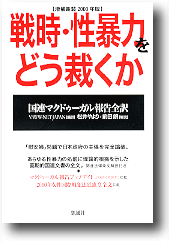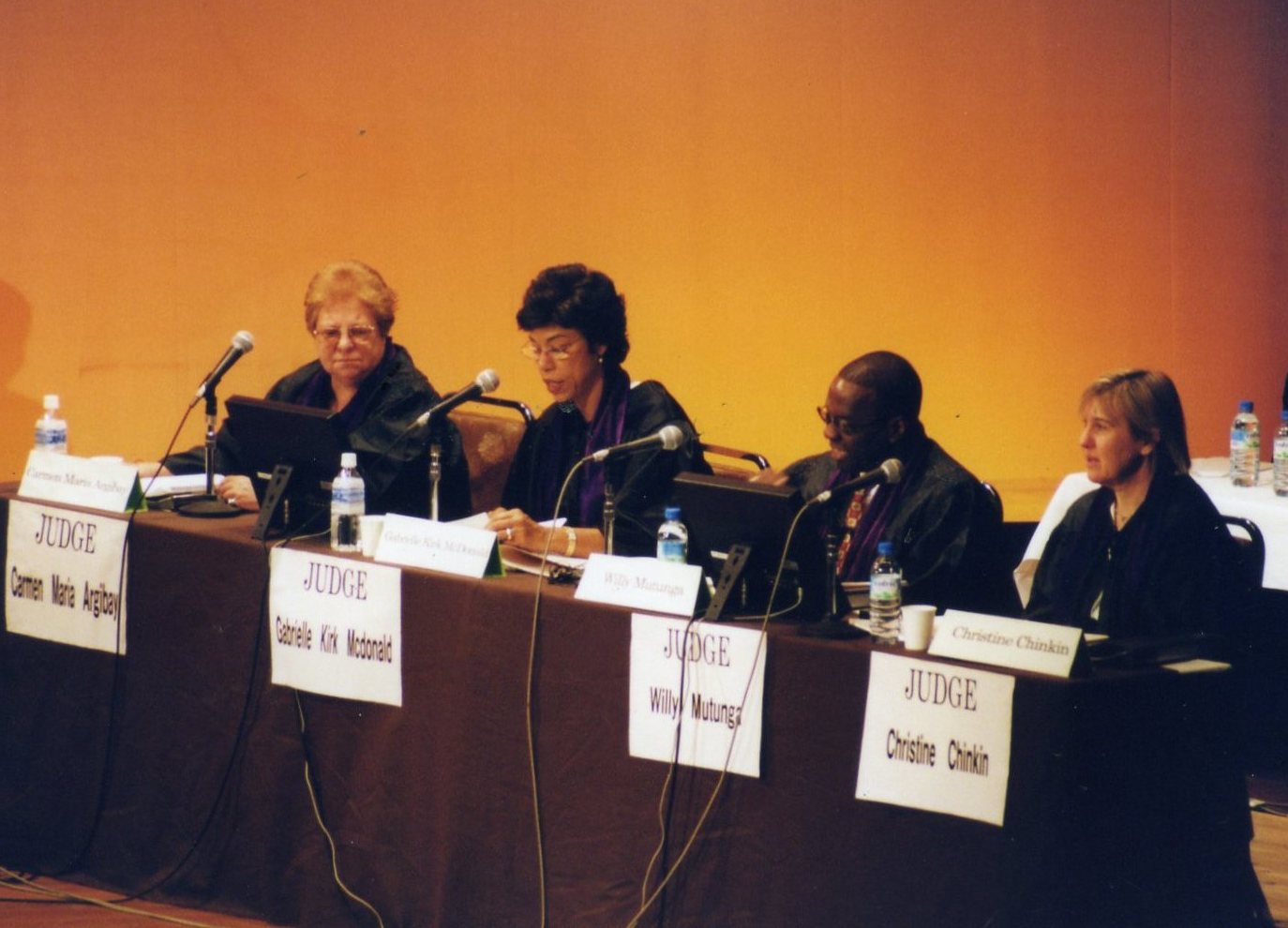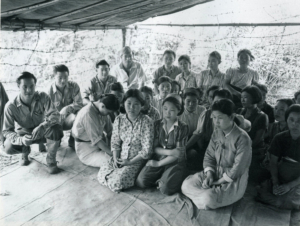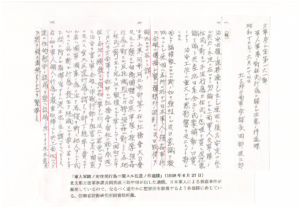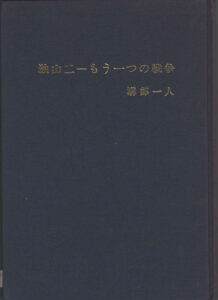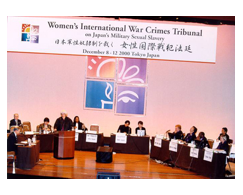 The Japanese military “comfort women” system is, as the Japanese Government itself recognizes as “an act, with the involvement of the military authorities of the day, that severely injured the honor and dignity of many women” (“Kono Statement” in 1993), a grave human rights abuse against women. In addition, sexual slavery in the name of “comfort women” system is judged as a “crime against humanity” in the international society. Let’s look at this point at issue.
The Japanese military “comfort women” system is, as the Japanese Government itself recognizes as “an act, with the involvement of the military authorities of the day, that severely injured the honor and dignity of many women” (“Kono Statement” in 1993), a grave human rights abuse against women. In addition, sexual slavery in the name of “comfort women” system is judged as a “crime against humanity” in the international society. Let’s look at this point at issue.
Crimes against Humanity and Sexual Violence
The concept of “crimes against humanity” was born in the 19th century and established as that of international law in the process of Nuremberg Trials punishing Nazi crimes against Jews and Tokyo Trials judging the former Japanese military and Government leaders. “Crimes against humanity” is the concept of war crimes referring to mass murder of civilian population, extermination, persecution on political, racial or religious grounds, enslavement, deportation, and other inhumane acts when committed as part of a “widespread or systematic” attack pursuant to or in furtherance of a State or organizational policy to commit such attack. This concept is applied to not only the wartime problems but also the peacetime ones.
Rape and sexual enslavement in the war or armed conflict wasn’t punished enough as a war crime in the Tokyo Trials and Class B and Class C War Crimes Trials. However, collective and systematic rape in the former Yugoslavia in the 1990s (part of ethnic cleansing) was independently punished as a “crime against humanity” for the first time in history in the International Criminal Tribunal for the former Yugoslavia.
“Comfort Women” System Punished by the Women’s International War Crimes Tribunal
The McDougall Report of the United Nations Sub-commission on the Promotion and Protection of Human Rights (1998 and 2000), which made a detailed review of Japanese military “comfort women” system based on international law, states clearly that because it was a widespread crime and the Japanese military was involved in the establishment, supervision and management of the comfort stations, individual Japanese soldiers must be held individually responsible for “crimes against humanity” and the postwar Japanese Government remains liable to pay compensation. This report had a big impact on the Women’s International War Crimes Tribunal described below and a resolution on “comfort women” adopted by European Parliament (27 member states) in 2007.
In the “Women’s International War Crimes Tribunal on Japan’s Military Sexual Slavery” held in Tokyo in 2000, which was headed by renowned international legal experts who were the former president or legal adviser of the International War Crimes Tribunal on the Former Yugoslavia, based on enormous materials such as official documents and testimonies of victims and soldiers committing violence about “comfort women” system, the system was punished by international law at the time of the crimes. In the final judgment (The Hague, the Netherlands, 2001), detailed factual and legal findings of “comfort women” system were made and rape and “comfort women” system were judged as “crimes against humanity”.
Why Does “Comfort Women” System Constitute a “Crime against Humanity”?
In what sense does the system constitute a “crime against humanity”?
In the final judgment, “factual findings” were made that the Japanese military established, supervised and managed facilities for sexual slavery (=comfort stations) for the use of soldiers with the highest level of approval by the Japanese Government, girls and women in the Asia-Pacific region were taken by means of abduction, coercion or deception and forcibly integrated into sexual slavery, and they were continuously raped and imprisoned once they were enslaved.
Does it constitute a “crime against humanity”? The acts from 1937 to 1945 constitute “crimes against humanity” only if they are ①committed before or during the war, ②part of a widespread or systematic attack directed against any civilian population and ③committed in relation to war crimes of crimes against peace. As shown in “factual findings”, “widespread and systematic” rape of “comfort women” and sexual slavery fulfills the conditions.
Even in World War Ⅱ, “rape” in battlefield was prohibited by Hague Convention of 1907 and violations of the Convention should be prosecuted as war crimes. Moreover, in those days, there were laws concerning “systematic rape, or sexual slavery” as follows: ①Prohibition of slavery by Slavery Convention of 1926 became customary international law until 1937, ②Enslavement of the residents in the occupied areas was prohibited by Hague Convention of 1907 (ratified by Japan), ③Forced labour was prohibited by Forced Labour Convention of 1930 (ratified by Japan), ④International Convention for the Suppression of the Traffic in Women and Children of 1904, 1910 and 1921 were ratified by Japan, and ⑤Forced prostitution was prohibited by customary law and Japanese defendants were found guilty in the postwar Netherlands Court Martial (Class B and Class C War Crimes Trials).
Rape and “Comfort Women” System as a “Crime against Humanity”
Furthermore, the final judgment states that “a crime of ‘sexual slavery’ was a form of enslavement and forced labour, and even the term ‘sexual slavery’ wasn’t used from 1937 to 1945, it is recognized as a crime against international law in those days”.
As a conclusion, the final judgment clearly acknowledged that “During World War Ⅱ, the Japanese military and Government authority committed rape and sexual slavery as a crime against humanity against tens of thousands of women forced to be sexually subordinate to the Japanese military as part of ‘comfort women’ system”.
Like this, “crimes against humanity” are constituted by “widespread or systematic” murder, extermination, enslavement, deportation, and other inhumane acts. In that sense, it should be noted that “comfort women” system is rape and sexual slavery as a “crime against humanity” and a grave human rights abuse against women committed by the Japanese military and Government.
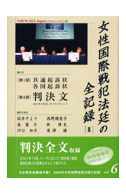
〈References〉
・Written by Gay McDougall, translated by VAWW-NET Japan, “How to Punish Sexual Violence―Complete Translation of the UN McDougall Report (newly enlarged edition, 2000)”, Gaifusha, 2000.
・Edited by VAWW-NET Japan, “The Entire Record of the Women’s International War Crimes Tribunal Ⅱ―Women’s International War Crimes Tribunal on Japan’s Military Sexual Slavery Vol.6”, Ryokufushuppan, 2002.

